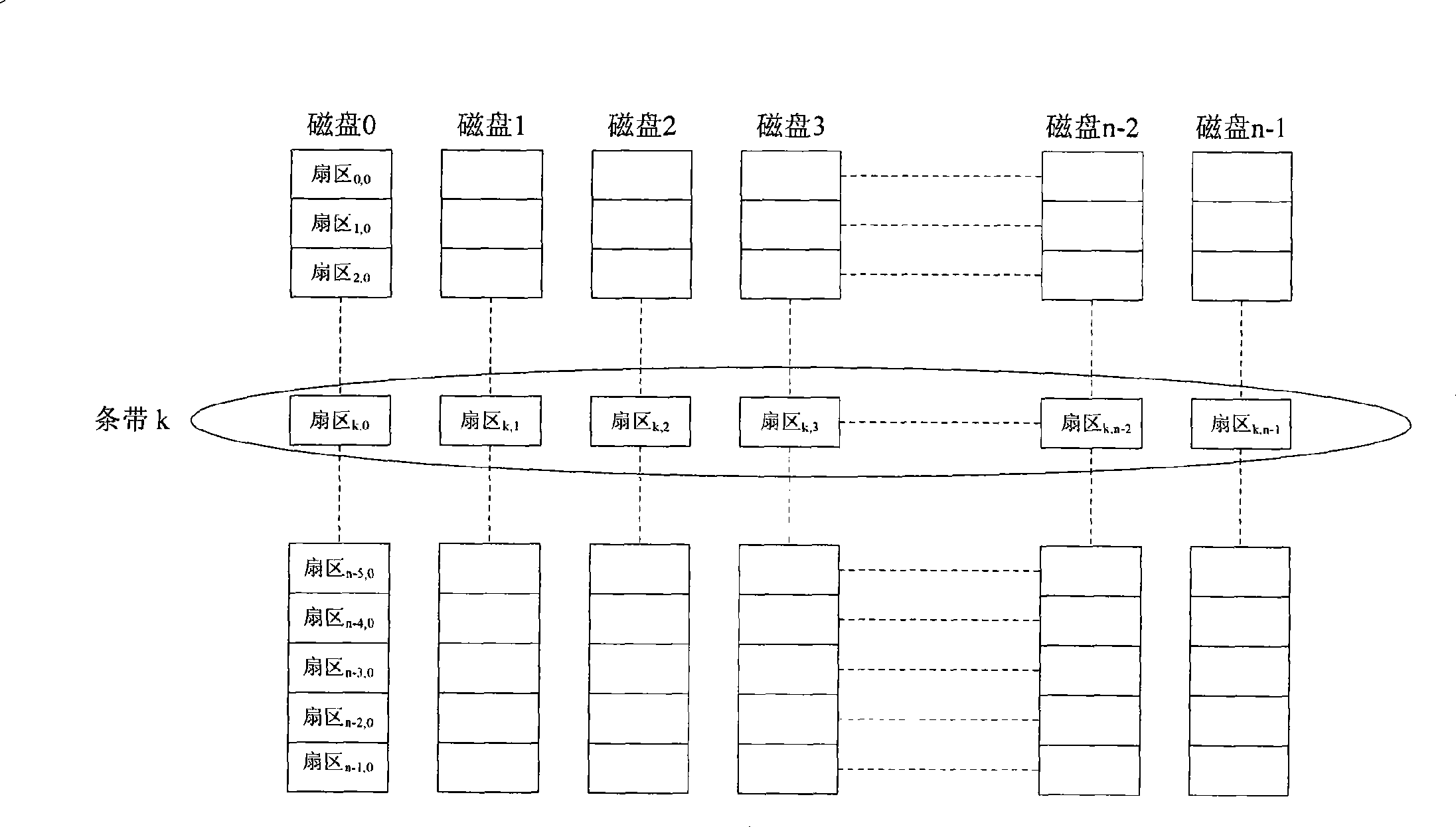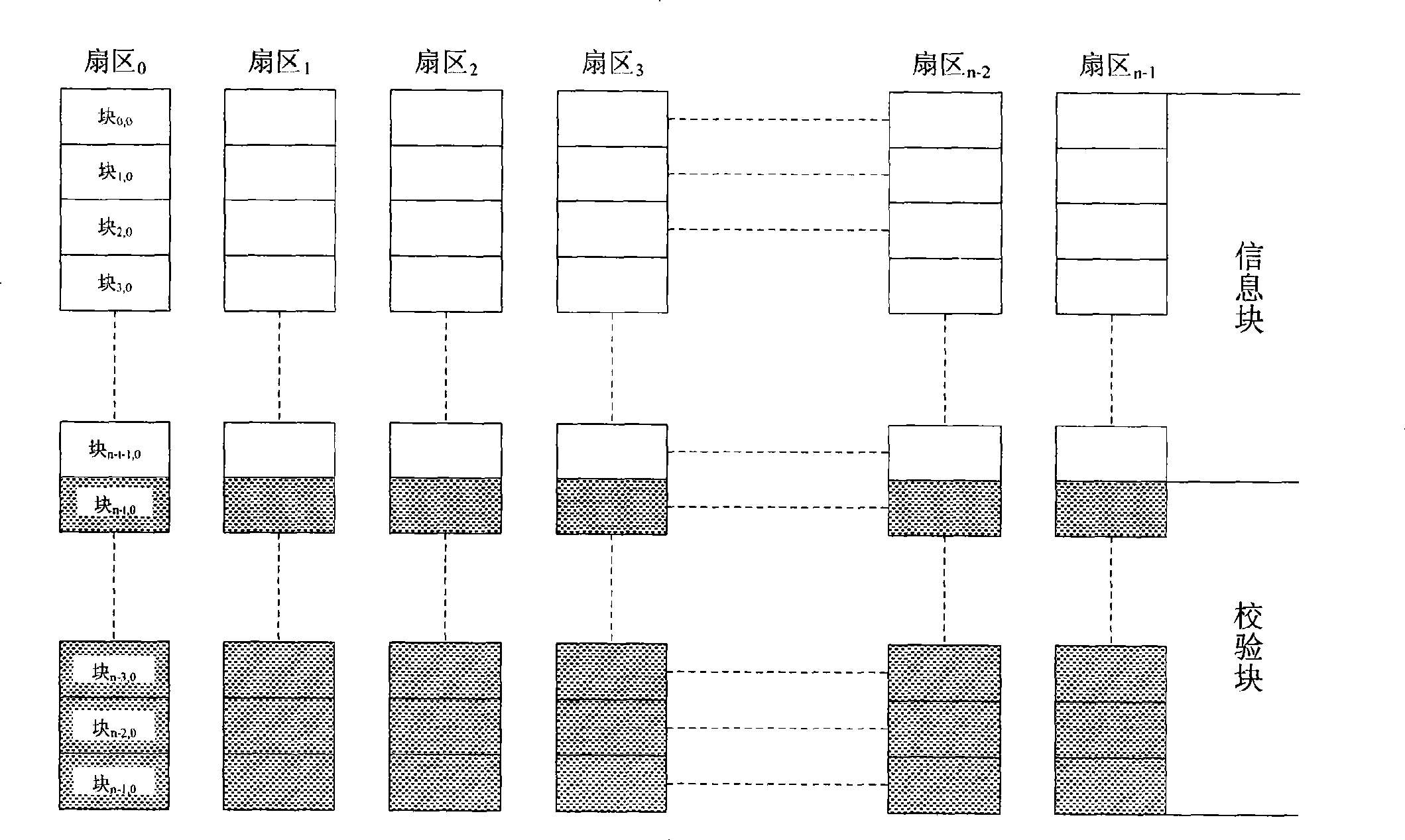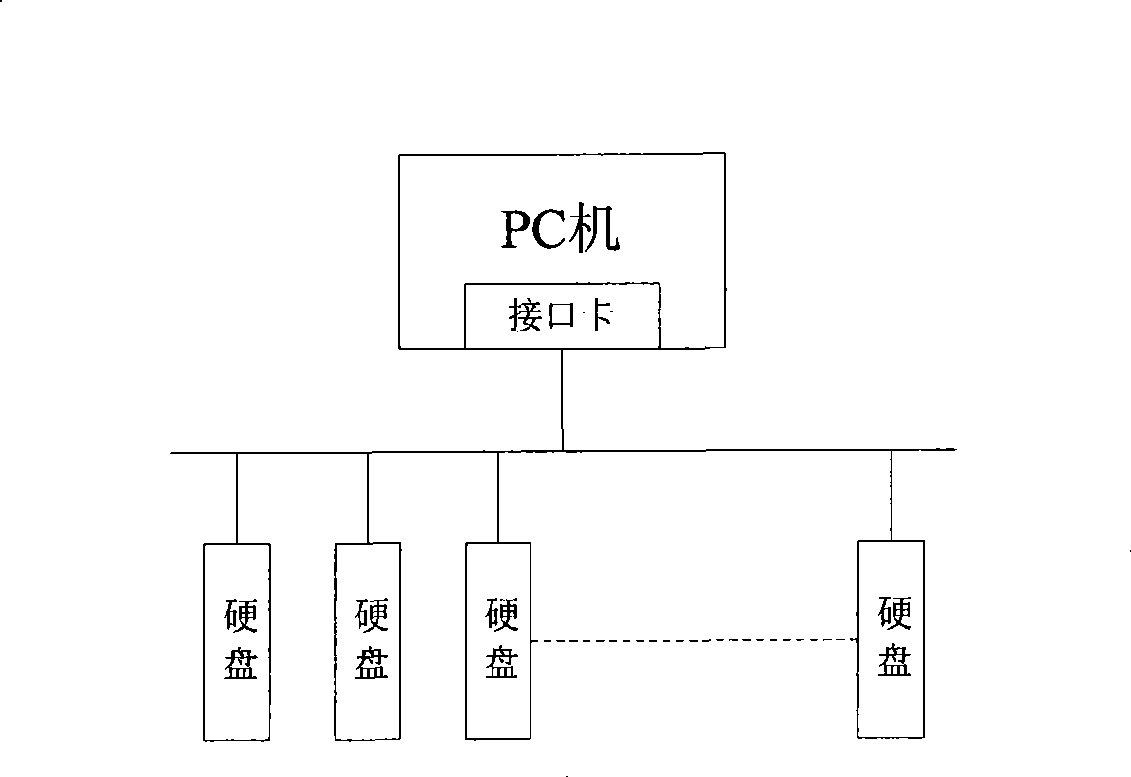Magnetic disc array system
A disk array and disk technology, applied in the direction of response error generation, redundant code error detection, etc., can solve problems such as disk failure, data loss, and low fault tolerance
- Summary
- Abstract
- Description
- Claims
- Application Information
AI Technical Summary
Problems solved by technology
Method used
Image
Examples
Embodiment 1
[0081] Construct a disk array system that includes n=32 disks and can tolerate t / 2=6 disks at most. The smallest capacity among all disks is 80G bytes, so the total capacity of the disk array system is 20*80G bytes. The storage space of each disk is divided into sectors with a size of 512 bytes, and sectors with the same number on each disk are grouped into a stripe, and the disk array system performs data read and write operations in units of stripes; each stripe The storage space of the tape, that is, each sector of each disk is evenly divided into 32 blocks, the first 20 blocks store valid information as information blocks, and the last 12 blocks store check information as check blocks; write operations on the stripe When the fault-tolerant coding method is used to produce check information, the valid information is stored in the information block, and the check information is stored in the check block; when a disk error occurs in the disk array system, the error disk recov...
Embodiment 2
[0145] The same place as in Embodiment 1 will not be described again, and the difference is that:
[0146] Construct a disk array system that contains n=32 disks and can tolerate t / 2=10 disks at most. The smallest capacity among all disks is 40G bytes, so the total capacity of the disk array system is 12*40G bytes. Each sector of each disk is evenly divided into 32 blocks, the first 12 blocks store valid information as information blocks, and the last 20 blocks store check information as check blocks.
[0147] The fault-tolerant coding method is as follows:
[0148] Construct a matrix of [12, 31] and set all its elements to 0
[0149]
[0150] Randomly select p=7 elements in the above matrix, and set their values to 1.
[0151] Row and column homogenization is performed on the matrix, and row and column transformations are performed randomly. The result is as follows:
[0152]
[0153] Save all elements with a value of 1 in the above matrix as a set of two-tuples:...
Embodiment 3
[0174] The same place as in Embodiment 1 will not be described again, and the difference is that:
[0175] Construct a disk array system that includes n=4 disks and can tolerate a maximum of t / 2=1 disks. The smallest capacity among all disks is 120G bytes, so the total capacity of the disk array system is 2*120G bytes. Each sector of each disk is evenly divided into 4 blocks, the first 2 blocks store valid information as an information block, and the last 2 blocks store verification information as a check block.
[0176] The fault-tolerant coding method is as follows:
[0177] Construct a matrix of [2, 3] and set all its elements to 0
[0178] 0 0 0 0 0 0
[0179] Randomly select p=2 elements in the above matri...
PUM
 Login to View More
Login to View More Abstract
Description
Claims
Application Information
 Login to View More
Login to View More - Generate Ideas
- Intellectual Property
- Life Sciences
- Materials
- Tech Scout
- Unparalleled Data Quality
- Higher Quality Content
- 60% Fewer Hallucinations
Browse by: Latest US Patents, China's latest patents, Technical Efficacy Thesaurus, Application Domain, Technology Topic, Popular Technical Reports.
© 2025 PatSnap. All rights reserved.Legal|Privacy policy|Modern Slavery Act Transparency Statement|Sitemap|About US| Contact US: help@patsnap.com



